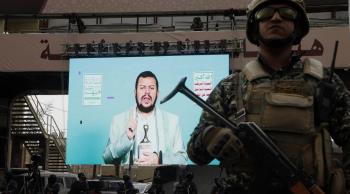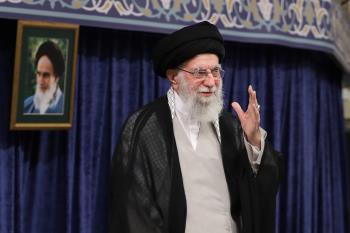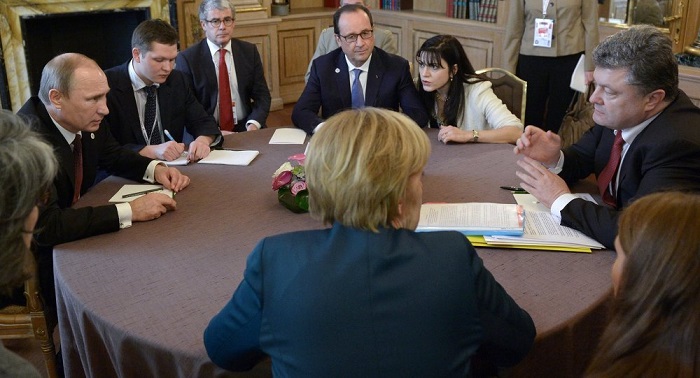Alwaght- As the Syrian and Russian military forces press ahead with their anti-terrorist operations in Syria’s northwestern city of Aleppo and in a conditions that this military campaign has drawn new round of foreign pressures against Moscow, the tripartite meeting to find solutions for Ukraine's crisis with presence of Russia has led to even further strains on Moscow. The very important thing here is the interconnectedness of Syria and Ukraine crises.
During the meeting held by Germany, France, Russia, and Ukraine in Berlin on Wednesday, October 19, the two European powers have demanded restoration of ceasefire in Aleppo and ending what they called bombing of the civilians in a bid to put new strains on the Russian President Vladimir Putin. At the same time, some sources suggested that the participating sides said the meeting to settle the crisis in Ukraine has made some progress.
The German Chancellor Angela Merkel just before Berlin meeting described talks with the Russian leader on Syria as difficult, adding that the case now was about criminal acts in Syria, and about crimes against the civilians. François Hollande, the French president, has used the term “war crimes” in his reference to the Russian anti-terror military campaign in Syria.
Chancellor Merkel said Germany agreed that terrorism must be tackled but not at the cost of 300,000 people losing their lives or suffering shortage in the very basic needs of life.
These remarks by the European leaders are coming while Hollande and Merkel are set to discuss additional economic sanctions on Moscow in EU meeting because of the Russian operations in the contested city of Aleppo. Although at the time being there is no EU consensus on sanctioning Russia by the bloc, Britain and France along with Northern Europe countries maintained that once Moscow continues its anti-terror bombing campaign in Aleppo’s east, they will discuss further sanctions on Russia.
Responding to the economic threats, the Russian president, upon his return from Berlin, in a press conference said that Moscow was ready to help Syria’s elections be held by pushing for process for approval of new constitution in Syria. President Putin also maintained he was ready to set in motion a daily 8-hour ceasefire in Syria. Highlighting the significance of fight against terrorism, the Russian leader asked the US to draw clear lines between Jabhat Fateh al-Sham, formerly al-Nusra Front, and what it called moderate Syrian opposition groups.
The Syrian conflict overshadowed the European leaders' meeting while the main agenda of the meeting was discussion of Ukraine crisis. The sources suggested that Syria crisis was incorporated in Ukraine meeting at the insistence of Germany's Merkel.
Progress in Ukraine case
After the end of Berlin meeting, the German Chancellor said negotiations with Putin, Hollande, and the Ukrainian President Petro Poroshenko opened the way for a preliminary road map for implementation of Minsk peace agreement that was signed in February 2015. According to Merkel, the foreign ministers of the four countries were set to discuss details of the road map in November, but she said the sides still had hard work ahead.
The Ukrainian president noted that the four sides in the 5-hour meeting agreed that the Ukrainian army forces and pro-Russia separatists retreat from four new front lines in Donbas region in eastern Ukraine. This comes while forces from both warring sides last month retreated from three more fronts in Ukraine’s east. They also agreed that supervisors from Organization for Security and Co-operation in Europe (OSCE) could be armed, and their work of watching the Minsk peace agreement will not be interrupted.
The insurgency of the Ukrainian secessionists started in 2014 and so far has left 9,600 people killed. Moscow and Kiev accuse each other of causing more violence in crisis-hit areas of Ukraine and so violation of the terms of Minsk peace deal. An array of efforts so far failed to cease the clashes between Ukrainian armed forces and eastern separatists.
How are Syria and Ukraine crises linked?
Although in Wednesday’s Berlin meeting Syria and Ukraine cases were ostensibly discussed separately, their raising in a single meeting is a confirmation of the suggestions raised since two years ago about direct links between Syria and Ukraine conflicts following Moscow's more serious approach to the crisis in Syria.
Some analysts say Russia keeps the Ukrainian situation ablaze in a bid to put pressures on the West, especially the US for the final aim of pacifying West’s extreme positions against the Syrian government and wresting concessions from the Western sides. The course of Syria’s developments indicates that although the case is not that easy for Moscow, the Russian acts to manipulate Ukraine’s crisis and play with Ukraine’s card have given Moscow further maneuvering power.
However, Western countries with all of pressures and threats against Moscow so far failed to agree on new sanctions on Russia. We need to take into consideration that the existing anti-Russian sanctions are exactly linked to Ukraine’s conflict and Russia’s annexation of Crimea Peninsula and so far the West has not imposed sanctions on Moscow for Syria crisis. Meanwhile, the European countries are well aware that once they announce additional sanctions on Russia, not only they will lose Moscow’s cooperation in Syria conflict but also see chances of finding settlement for the Ukrainian conflict fading away.
Despite the fact that Moscow several times denied having any hands in eastern Ukraine crisis and that it has no military presence there, its sway over the Ukrainian secessionists showed itself in the failed ceasefire deal with the US. Only a day after announcement of Moscow and Washington-brokered truce in Syria, the eastern Ukraine separatists declared a voluntary cessation of fire in the country’s east.
Therefore, as it appears, the West has come up with the notion that the two cases of Ukraine and Syria are tied to each other in the eyes of Moscow, and to make gains in one case they have to consider the other one. This is why the Wednesday’s meeting and discussions were held in such a format and style.



























